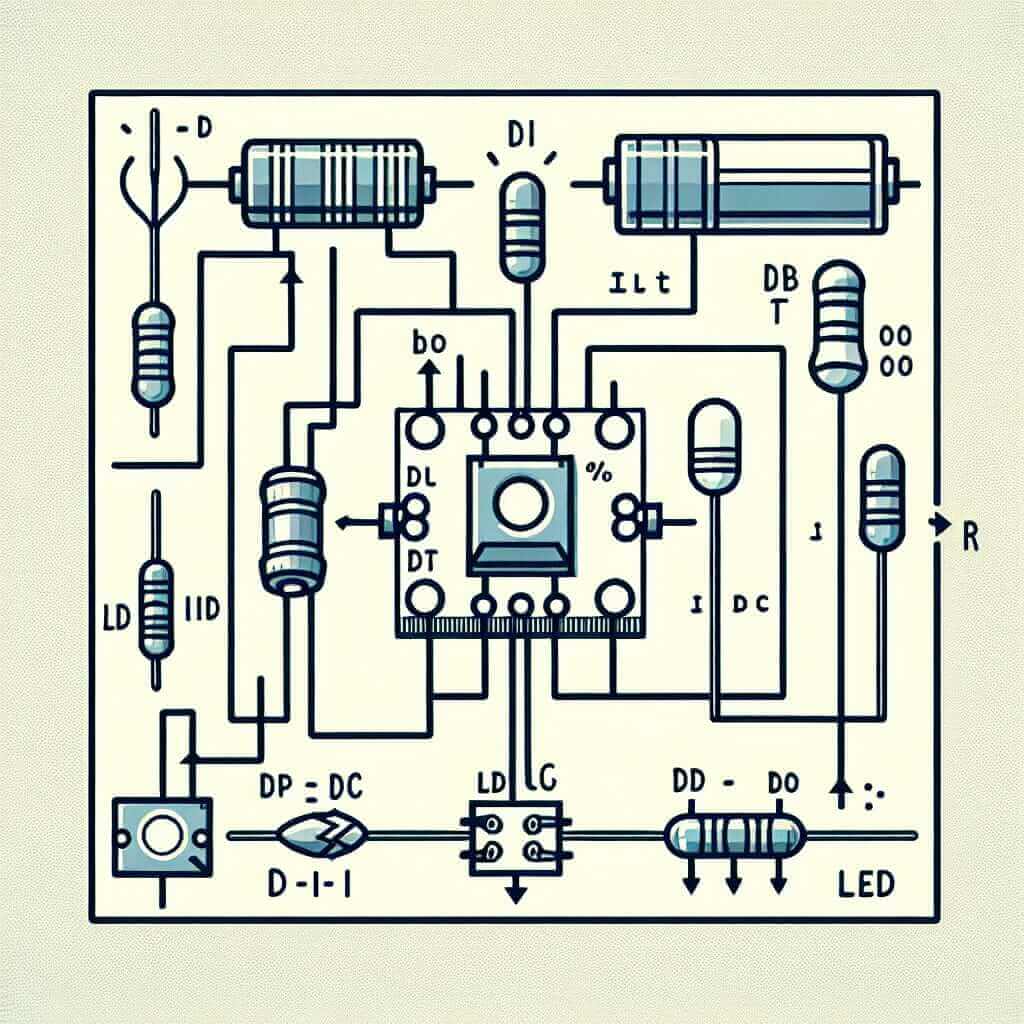While “78. Circuit” itself might not be a common phrase in everyday English, understanding its components, “circuit” and the concept of numbers in technical contexts, is crucial for IELTS success. The word “circuit” frequently appears in IELTS Listening (especially in sections discussing technology, electronics, or processes) and Reading passages on similar topics.
Here are some synonyms for “circuit”:
- Network: (noun) A group or system of interconnected things
- System: (noun) A set of things working together as parts of a mechanism or an interconnecting network.
- Loop: (noun) A shape produced by a curve that bends round and crosses itself.
Understanding “Circuit”
Definition and Pronunciation
“Circuit” (/ˈsɜːkɪt/ ) refers to a complete and closed path that electricity can flow through. It can be a literal path, like the wiring in your house, or a metaphorical one, like a race track.
Different Contexts
- Electronics: In its most common use, “circuit” refers to the arrangement of electrical components (like resistors, transistors, and capacitors) that control the flow of electricity.
- Processes: “Circuit” can also describe a series of stages or steps in a process. For instance, we might talk about the “circuit of information flow” within a company.
- Geography: A “circuit” can be a route that goes around a particular area, often returning to the starting point, similar to a loop. For example, a tour guide might take tourists on a “circuit of historical landmarks.”

“Circuit” in IELTS
Listening
You might encounter “circuit” in IELTS Listening sections about:
- Technology lectures: A professor explaining how an electrical circuit works.
- Descriptions of devices: A product review mentioning the device’s internal circuitry.
- Instructions: Directions on how to assemble a simple circuit as part of a science experiment.
Example:
“The guide then explained that the museum had recently upgraded its security system by installing a closed-circuit television system with cameras in every room.”
Reading
Passages about:
- The history of electronics: Discussing the invention of the integrated circuit and its impact on technology.
- Renewable energy: Describing how solar panels convert sunlight into electricity and feed it into the power grid.
- Manufacturing and Industry: Explaining the production process of a product, potentially referencing a circuit board or assembly line.
Example:
“The invention of the integrated circuit in the late 1950s revolutionized the electronics industry, paving the way for the miniaturization of electronic devices.”
Using “Circuit” in Your Writing and Speaking
While “78. Circuit” might not have a direct application, you can use “circuit” effectively in other contexts:
Speaking Part 2: “My grandfather worked as an electrician for over 40 years. He was an expert in electrical circuits and could fix almost any problem in a house.”
Writing Task 1 (describing a process): “The first stage of the manufacturing process involves assembling the electronic components on a circuit board.”
Collocations and Idioms
- Closed circuit: A system that is not open to the public.
- Short circuit: A malfunction in an electrical circuit, often causing it to stop working.
- Circuit training: A type of exercise routine that involves moving quickly from one exercise to the next.
- Make the rounds/circuit: To go from one person or place to another in a group, especially to socialize or to spread news.
Conclusion
While “78. Circuit” may seem like an arbitrary combination, understanding the individual components and their usage is key for IELTS. By mastering vocabulary related to technology, processes, and systems, you’ll be well-equipped to handle a wider range of IELTS questions and improve your overall score. Remember to practice using “circuit” and related terms in your speaking and writing to solidify your understanding and boost your confidence.